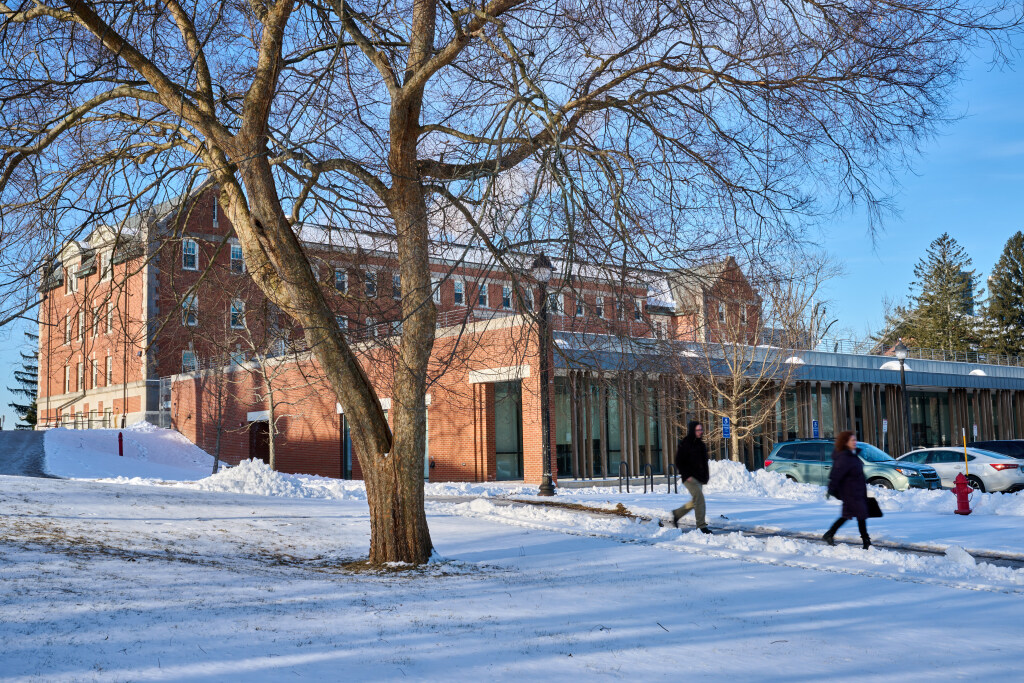The United States has left an age of bipartisanship and entered one of extreme polarization, with race once again playing an explosive role, political commentator David Gergen told the audience at a symposium organized by the Connecticut Law Review at the UConn School of Law.
“We have left what increasingly is looking like a golden age in our politics and public affairs and are entering what the immortal Dante might call a dark wood. This is a very dark passage in American public life,” said Gergen, who is a professor of public policy at the Harvard Kennedy School. A root cause of the conflict, he added, is the resistance of the white majority to losing power to people of color.

Carol Anderson, professor of African American studies at Emory University, agreed about the role of race and white supremacy in the deterioration of political discourse. “When you can demonize the other, then you don’t have to compromise. When your goal is to oppose, then you don’t have to compromise,” she said. “And key in that is the issue of race.”
The symposium “How We Argue Now: The Moral Foundations of Politics & Law,” was held Oct. 11, 2019, and was co-sponsored by Humility & Conviction in Public Life, the UConn Humanities Institute and the UConn Human Rights Institute. Students, faculty, alumni and members of the community packed the Reading Room in William F. Starr Hall and spilled into the nearby courtroom to hear academics and other experts discuss the finer points of our tumultuous times, how we got here, and where we need to go.
Gergen and Anderson spoke on the first of four panels, “Political Polarization and Fact-Free Arguments,” which focused on the divided political climate. They and fellow panelists Leah Rigueur and Daniel Shapiro of Harvard University discussed topics ranging from voter suppression and Black Lives Matter to the 2016 election and tribalism.
Danielle Allen, director of the Edmond J. Safra Center for Ethics and James Bryant Conant University Professor at Harvard University, delivered the keynote address. Reversing the erosion of political culture means not only restoring civility to public discourse but reforming failing political institutions, she said.
“We can make history by ascertaining whether we have the capacity to rebuild a functioning system of representation for the very, very changed demographic and technological circumstances of the 21st century,” she said. On her list of things to do: enlarge the House of Representatives, adopt ranked-choice voting and set term limits for Supreme Court justices.
Jessica Zaccagnino ’20 and Carolyn Rennie ‘20, symposium editors for the Connecticut Law Review, were enthusiastic about the event’s success. “In an age of such extreme division, critical discussion of political polarization, open to the public, is vital to restoring our democracy,” Zaccagnino said. “I absolutely loved the passionate dialogues within the panels and between speakers and attendees.”
Rennie said they could not have hoped for a better symposium, and credited faculty adviser Richard Ashby Wilson for his help. “We worked on this event for over a year, and despite speaker rejections, schedule changes, and difficult emails, it was an extremely enjoyable and educational process. Professor Wilson was an incredible advisor and mentor, and all the speakers were brilliant.”


